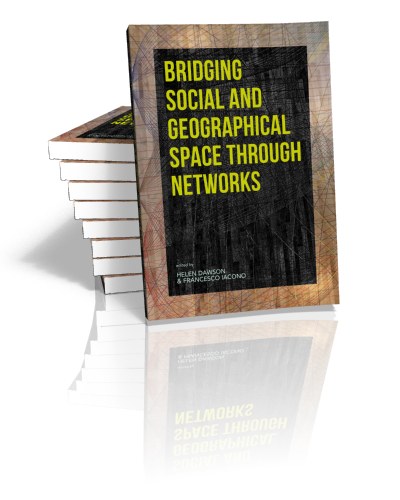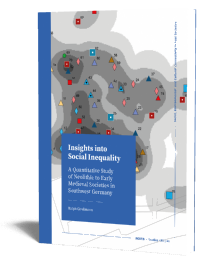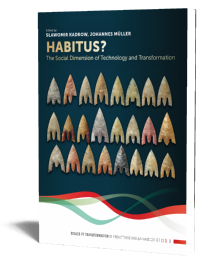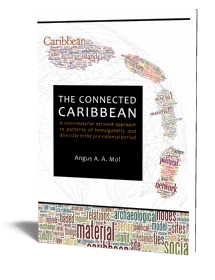Abstract:
This volume represents a bold attempt by the editors to bring scholars from distinct research orientations together, to discuss the interplay between the geographic and social dimensions of different kinds of interaction networks.
Within the humanities, networks afford an umbrella of approaches to the study of social relations and their patterning, both through qualitative and quantitative applications, with two main perspectives standing out: those centered on space and those concerned with the social dimension of interaction. In this book, we aim to highlight the potential for integrating these different research directions and identify common ground for developing new interdisciplinary insights.
The volume demonstrates how a network approach can successfully incorporate and frame different kinds of theoretical perspectives and methodological applications, drawing on multiple strands of social and geographical theory and using data as diverse as archaeological artefacts, roads/infrastructure, textual sources, and information from living informants. As such, it will appeal to archaeologists, historians, geographers, and sociologists, as well as anyone interested in exploring further the potential for employing network-based methodologies within the Humanities and Social Sciences, and in enriching their understanding of the theoretical and interdisciplinary underpinnings of widely employed concepts in network science.
The volume stems from a workshop held at the Freie Universität Berlin which was funded and hosted by the Excellence Cluster Topoi. The publication of the proceedings has been made possible thanks to generous financial support from the Gerda Henkel Foundation.
Contents
Bridging social and geographical space through networks: Introduction
H. Dawson & F. Iacono
Three simple geographical network models for the Holocene Bismarck Sea
M. Golitko and J.E. Terrell
Terrestrial transportation networks and power balance in Etruria and Latium Vetus between the beginning of the Early Iron Age and the end of the Archaic Period
F. Fulminante, S. Lozano, L. Prignano, and I. Morer
Getting around the City: A Space Syntax perspective on post-medieval Nuremberg
D. Wehner
Memory as a network of affects: bridging the humanities and social sciences to understand the social spaces of storytelling
S. De Nardi
At the heart of Mare Nostrum: Islands and “small world networks” in the central Mediterranean Bronze Age
H. Dawson
Marx, networks and the social logic of interaction
F. Iacono

Dr.
Helen Dawson
Helen Dawson is Adjunct Professor at the Department of History, Cultures and Civilisations at the University of Bologna, and Affiliate Research Fellow at the Institut für Prähistorische Archäologie at the Freie Universität Berlin. She is the author of “Mediterranean Voyages. The Archaeology of Island Colonisation and Abandonment” (Left Coast Press 2014) and of several journal articles exploring cultural and environmental adaptations in the smaller islands of the Mediterranean. Her current research explores different forms of networks and the recursive relations shaping social practices and space, as seen through the lens of insularity.
read more

Dr.
Francesco Iacono
Francesco Iacono is Senior Assistant Professor in Prehistory at the Department of History, Cultures and Civilisations at the University of Bologna. His research interests range from prehistory and archeology of the Mediterranean (with particular attention to the Bronze Age), to social theory (in particular Marxist archeology) to the use of applications based on graph-theory, to cultural heritage studies, and, finally, the history of the archaeological thought.
read more











